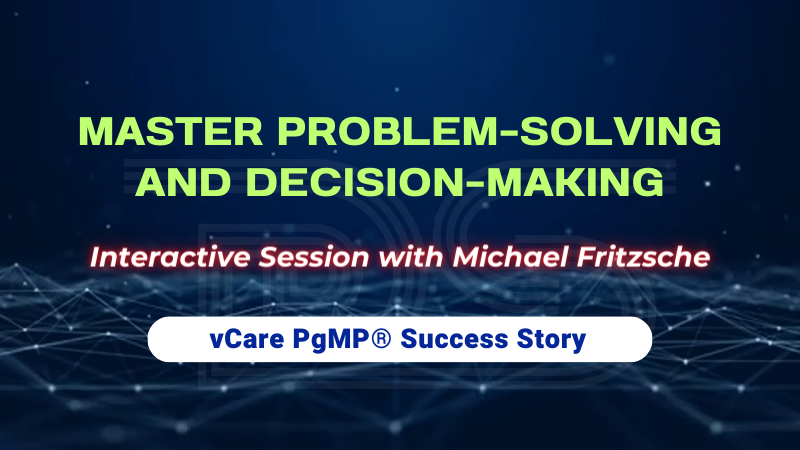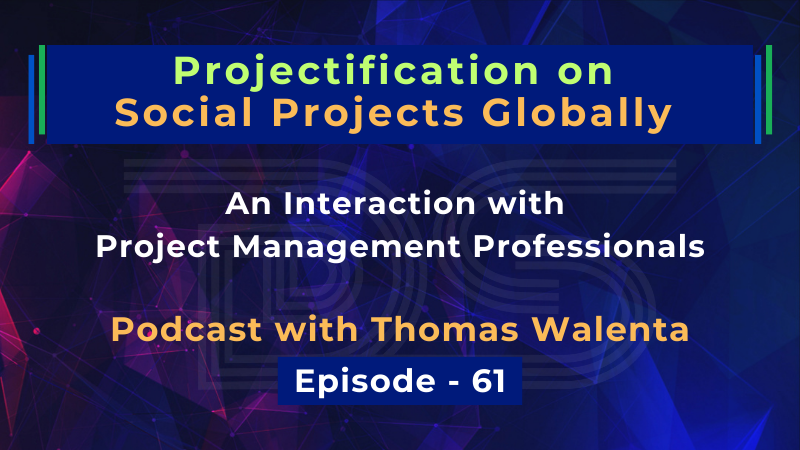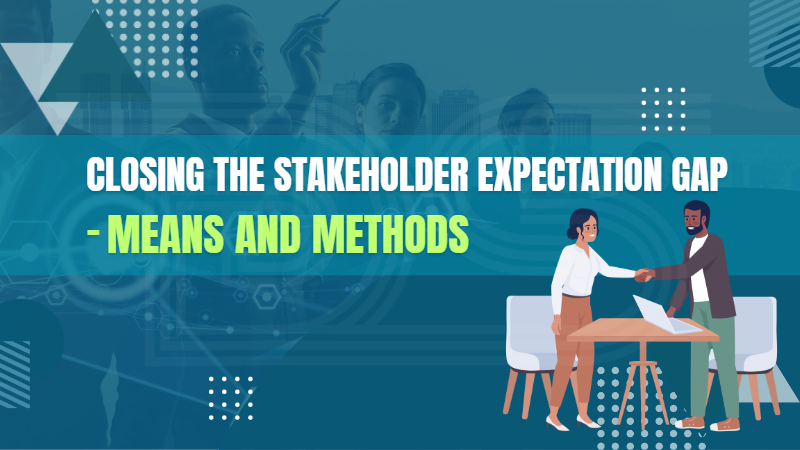
by Dharam CW2 | Mar 21, 2024 | Professional Development Webinars
Dive deep into the PMI’s latest enhancements to the Program Management Professional (PgMP)® credentials, tailored for senior project, program, and portfolio management professionals.
Registration Link: https://bit.ly/4c9un0j
Session Date : 26th March 2024
Session Time : 10:30 AM – 11:30 AM (PDT) / 11:30 AM – 12:30 PM (MDT) / 12:30 PM – 01:30 PM (CDT) / 01:30 PM – 02:30 PM (EDT) / 02:30 PM – 03:30 PM (BRT) / 05:30 PM – 06:30 PM (GMT) / 06:30 PM – 07:30 PM (CET) / 07:30 PM – 08:30 PM (SAST) / 08:30 PM – 09:30 PM (AST) / 09:30 PM – 10:30 PM (GST)
Webinar Agenda
– Simplified Application Insights: Grasp the updated application’s simplicity, from reduced experience summaries to a wider panel expediting reviews.
– Revised Standard for Program Management: Unpack the 5th Edition’s eight principles, spotlighting Stakeholders and Governance to elevate global program practices.
– Aligned Exam Content: Decode the subtle yet vital changes in the exam outline mirroring the new standard’s language.
– Exclusive PMI Membership Perks: Uncover the benefits, including complimentary access to crucial PMI standards, bolstering your certification pursuits.
– Industry Expertise & Dialogue: During our expert insights, benefit from the wisdom of a seasoned PgMP trainer. Clarify your doubts in our extensive Q&A segment.
– Preparation Roadmap: Walk away confidently with a strategic action plan, essential resources, and community backing to conquer the new PgMP exam.
🚀 Elevate Your Project Management Career:
– Book an obligation-free consultation session on Project management Career, training, and certifications: http://talktodharam.com
– Discover training offers and certification discounts: https://bit.ly/3jWVepD
– Stay updated with our Q&A series and certification success stories by subscribing to the vCare Project Management YouTube channel at https://bit.ly/2YF0wJl
– Follow my podcasts and interviews with Project Management Experts on YouTube at https://bit.ly/2NDY8wd

by Dharam CW2 | Mar 9, 2024 | Professional Development Webinars
Join me for an exclusive webinar where Michael Fritzsche, a distinguished Project, Program, and Portfolio Management professional in the automation industry from Rheinböllen, Rhineland-Palatinate, Germany, will share his journey and experiences, offering attendees a unique perspective on overcoming challenges and leading strategic projects.
Key topics to be covered include:
– Equipping Senior Managers for Strategic Decision-Making.
– The Dynamics of Human Judgment vs. Algorithms in Decision-Making.
– Best Practices for Building Stakeholder Trust and Credibility.
– Effective Use of Deadlines to Boost Productivity.
🔗 Reserve your spot now: https://bit.ly/3ON2Ibl
Session Date: 21st March 2024
Session Time: 09:30 AM – 10:30 AM (PDT) / 10:30 AM – 11:30 AM (MDT) / 11:30 – 12:30 PM (CDT) / 12:30 PM – 01:30 PM (EDT) / 01:30 PM – 02:30 PM (BRT) / 04:30 PM – 05:30 PM (GMT) / 05:30 PM – 06:30 PM (CET) / 07:30 PM – 08:30 PM (AST) / 08:30 PM – 09:30 PM (GST) / 10:00 PM – 11:30 PM (IST)
🚀 Elevate Your Project Management Career:
– Book an obligation-free consultation session on Project management Career, training, and certifications: http://talktodharam.com
– Discover training offers and certification discounts: https://bit.ly/3jWVepD
– Stay updated with our Q&A series and certification success stories by subscribing to the vCare Project Management YouTube channel at https://bit.ly/2YF0wJl
– Follow my podcasts and interviews with Project Management Experts on YouTube at https://bit.ly/2NDY8wd

by Dharam CW2 | Feb 29, 2024 | Project Management
Projectification on Social Projects Globally | Thomas Walenta | Dharam Singh | Episode 61
Dive into a riveting discussion on the transformative power of global project management in the latest episode of our podcast, featuring the esteemed Thomas Walenta and myself.
🌐 Episode 61 explores the concept of ‘projectification’ and its profound influence on social projects worldwide, dissecting the intricate dynamics between project management and societal advancement.
🔍 We delve into:
– The burgeoning impact of project management on society and global practices.
– Unique challenges and requirements faced by the public sector in project portfolio management.
– Strategies for government organizations to embed a robust project management culture.
– The ripple effect of projects on societal structures and organizational operations.
– Analyzing and measuring project quality against stringent criteria.
This episode is an essential listen for senior project, program, and portfolio management professionals seeking to grasp their work’s far-reaching implications on society and understand how projects are becoming the bedrock of operational strategies globally.
🎧 Tune in to gain invaluable insights that will redefine your perspective on the project’s role in societal development.
▶️ Watch now: https://youtu.be/rMb7BJ6TuZA
🚀 Elevate Your Project Management Career:
– Register for my upcoming PgMP/PfMP Success Story Webinar: https://bit.ly/4bd68h8
– Book an obligation-free consultation session on Project management Career, training, and certifications: http://talktodharam.com
– Discover training offers and certification discounts: https://bit.ly/3jWVepD
– Stay updated with our Q&A series and certification success stories by subscribing to the vCare Project Management YouTube channel at https://bit.ly/2YF0wJl
– Follow my podcasts and interviews with Project Management Experts on YouTube at https://bit.ly/2NDY8wd

by Dharam CW2 | Jul 24, 2023 | General
Delivering a successful project is challenging, especially when there are multiple stakeholders. However, even if a project is performed on time, on budget, and to the expected scope, it can still be regarded as a success only if the stakeholder expectations are managed appropriately.
Each project stakeholder has certain expectations. Project managers are at the forefront of potentially disastrous situations when such expectations conflict. They must address and resolve the issue or risk jeopardizing the project and their position. Because the fundamental cause of problems is only sometimes apparent, project leaders and teams must analyze links between issues and stakeholder motives using interpersonal skills such as resolving conflict, resistance to change, and trust building.

Project Stakeholders
Project Stakeholders
A stakeholder is an individual, group, or organization that is affected by the result of a business venture or project.
Stakeholder interactions may positively or negatively impact the project’s life cycle. Thus, a project leader must identify important stakeholders and develop a stakeholder management plan to satisfy their demands. Using project management tools and strategies to keep track of the key stakeholders is an excellent method to remain on top of things and ensure that project stakeholders remain satisfied and productive.

Types of Stakeholders
Internal Stakeholders
An internal stakeholder is somebody whose interest in the project is directly linked to their affiliation with the entity in charge. Internal stakeholders want the strategic and commercial goals of the project to be realized. They might be project managers, team members, sponsors, owners, or investors.
External Stakeholders
External stakeholders are not directly linked with the company but are important to the business or are influenced by the project in some way. Those are frequently supply chain participants, creditors, or public groups.
Stakeholder Management
The stakeholder management process includes communicating project status, expenses, and barriers to stakeholders to increase visibility, navigate changes in project direction, and manage expectations. Project stakeholders are those involved in the project or whose interests may be influenced by the project’s execution or completion.
Stakeholder management helps project managers keep change at the forefront of their thoughts while making it less intimidating. Furthermore, the stakeholder management plan is a reminder for every interaction the project managers have with direct or indirect stakeholders, helping them maintain a genuine link between the project and day-to-day operations.
Closing the Stakeholder Expectation Gap – Means
An effective stakeholder management process ensures that timely and relevant feedback is provided, and that the stakeholder management strategy directs the change effort. The project manager maintains stakeholder expectations, resolves conflicts, and identifies and fixes any problems that develop throughout the project. In general, the following are the fundamental parts form the stakeholder management process:

The Necessary Elements For Successful Stakeholder Management
- Managing stakeholder expectations: The project is more likely to succeed when stakeholders’ expectations are actively managed. As a result, to ensure perfect conformance with project goals and expectations and to continue the project management effort, the project manager must continually negotiate and influence the demands of stakeholders.
- Managing stakeholder perception: It is critical for project success to ensure that stakeholders are involved in the project regularly and are kept up to date on the project’s progress. High-level stakeholder perception increases the likelihood that stakeholders will provide the necessary support and the project will be completed as intended.
- Keeping track of stakeholder activity: The project manager is primarily responsible for recording and tracking all stakeholders’ activity. As a result, to secure stakeholder acceptance and project communications plan adherence, the project manager should formally document all contacts with stakeholders and keep records of the project’s outcomes.
- Solving problems and resolving conflicts: To avoid challenges and conflicts, the project manager should address stakeholders’ concerns and identify risks and threats in collaboration with conflict management. By referring to change requests, the project manager can generate solutions.
Understanding the components of the managing stakeholder’s process enables the project manager to engage with stakeholder expectations and demands and build action plans to be used when disputes and challenges emerge. The project manager can utilize the following tools to assess conflicts and challenges, as well as manage stakeholders on an individual and group level:

Tools To Assess Conflicts And Challenges In Managing Stakeholder’s Process
- Issue logs: An issue log is a tool for assessing issues and documenting resolutions. It is a document with a rigid categories structure that allows each issue to be placed in the appropriate category (issue group). The project manager uses problem logs to ensure that each stakeholder understands the project and maintains positive working interactions among all stakeholders, including project team members.
- Change Logs: It is a tool for documenting any changes that occur throughout a project. The project manager uses change logs to track changes and their impact on project goals and deliverables. A change log should be provided to project stakeholders and should include data on changes to risks, uncertainties, costs, and budgets.
A change request for project deliverables may result from the technique for managing and engaging stakeholders. Changes to the stakeholder management approach and registry are also feasible. The method of managing stakeholders allows for evaluating and modifying stakeholder benefits created earlier in the project’s life cycle.
Five pitfalls to address while dealing with the expectations of stakeholders

5 Pitfalls To Address While Dealing With The Expectations Of Stakeholders
- Identify the stakeholders
A project often involves many stakeholders, and it can take time to identify all of them. A stakeholder is a person, a group, an organization, or a set of organizations that are actively involved in or may be affected by the project. Stakeholders can have an impact on a project in a variety of ways.
For example, if a stakeholder is top management in an organization and is not completely committed to a project, it may drastically limit buy-in throughout the business. Founders and C-suites are also stakeholders who can positively or negatively impact a project. Therefore, the identification of stakeholders is a critical step in managing expectations.
- Classifying stakeholders
Effective stakeholder management necessitates a project manager categorizing stakeholders based on their role in project completion. A project manager must determine which stakeholders are supporters and which may be obstacles to the project. It might be challenging to define the types of risks, where and when each risk exists, the impact on the project, or how to build strategies to handle possible risks if stakeholders cannot be classified.
- Mapping expectations
Project managers must resolve possible concerns, keep stakeholders involved and motivated, and finish the project on time. A project manager must have a good understanding of all stakeholders’ expectations. Stakeholder analysis and adequate documentation can be useful in mapping expectations. Stakeholders may have different priorities when completing tasks, milestones, or the full project. Their interests may be interpreted differently and have different definitions of success.
For example, one stakeholder may prioritize project completion on time, while another defines success as keeping it under budget. Mapping expectations and obtaining clarity among all stakeholders enhances the possibility that a project manager and their team can effectively complete a project.
- Using appropriate communication methods
Stakeholder management requires determining and implementing appropriate communication methods. To successfully manage stakeholder expectations, a project manager must establish the available and preferred communication mechanisms for stakeholders. A poor or incorrect communication approach can lead to distrust and dissatisfaction between stakeholders and a project manager. It is also essential to adjust communication tactics and frequency based on elements such as time, message, purpose, secrecy, or changes based on stakeholder contexts.
- Engaging stakeholders
Stakeholder engagement during the project with frequent updates boosts stakeholder confidence, which is essential for project success. In addition, efficient stakeholder management necessitates the involvement of stakeholders in decision-making by the project manager.
Although a project manager may believe they have already determined the optimal course of action, they should incorporate stakeholders in procedures and pertinent talks to ensure all options have been examined; otherwise, key possibilities and expectations may be missed.
Closing the Stakeholder Expectation Gap – Methods
Before beginning a new project, start by identifying all stakeholders. First, identify those impacted by the project and the organizations that will influence the project. Then, using the strategy outlined below, begin developing strong relationships with each stakeholder.

Closing the Stakeholder Expectation Gap – Methods
- Analyze stakeholders
Conduct a stakeholder analysis or an evaluation of the key participants in a project and how the initiative will affect their issues and requirements. Determine their unique qualities and interests. Find out what motivates them and what frustrates them. Define responsibilities and levels of engagement, and assess whether there are any disputes among stakeholders.
- Assess the influence
Determine the extent to which stakeholders can have an impact on the project. The more powerful a stakeholder is, the more a project manager will require assistance. When evaluating stakeholders, consider the question, “What’s in it for them?” Knowing what each stakeholder needs or desires from the project allows the project manager to measure their degree of support. Remember to weigh support against influence, like Is it more necessary to have strong support from a low-level stakeholder or moderate support from a high-level stakeholder?
- Understand their expectations
Determine the exact expectations of stakeholders. Then, when necessary, seek clarification to ensure they are thoroughly understood.
- Define “success”
Every stakeholder may have a distinct definition of project success. Discovering this towards the end of the project is a potential disaster. Instead, gather definitions and integrate them into the objectives to guarantee that all stakeholders support the final results.
- Keep stakeholders involved
- Don’t just provide updates to stakeholders.
- Solicit their opinions.
- Schedule time for brief meetings to get to know them better.
- Determine each stakeholder’s ability to engage while keeping time restrictions in mind.
- Keep stakeholders informed
- Send regular status updates.
- One update each week is generally adequate.
- Hold project meetings as appropriate, but allow enough time between them.
- Respond to stakeholders’ inquiries and emails as soon as possible.
- Regular contact is usually valued – and may help ease the impact when you have unpleasant news to deliver.
These are some of the fundamentals of developing effective stakeholder connections. However, like with any relationship, there are subtleties that every effective project manager knows, such as understanding the distinctions and responding successfully to various types of stakeholders.
Final Thoughts
There is a link between resolving conflicts in stakeholder expectations and project success. Similarly, the faster project teams defuse a potentially dangerous situation by recognizing the source of conflicts, the link between issues, and the motivations of stakeholders, the simpler it is to develop trust, settle conflicts, and overcome resistance to change.
Using diverse modes of communication between the project team, senior management, and stakeholders improves prospects for mutual understanding. These methods may help the project managers to meet the stakeholder expectations and reduce the risk of project disaster.
Feel free to check out my discussion on this topic with Thomas Walenta in YouTube
For any questions related to your Project Management career, training, and certifications, you can book an obligation free 15 minutes session with me by visiting talktodharam.com
You can subscribe to the vCare Project Management YouTube Channel to catch future videos of our Q&A series and certification success stories: https://bit.ly/2YF0wJl
You can subscribe to and follow my podcasts and interviews with Project Management Experts on YouTube at https://bit.ly/2NDY8wd















Recent Comments